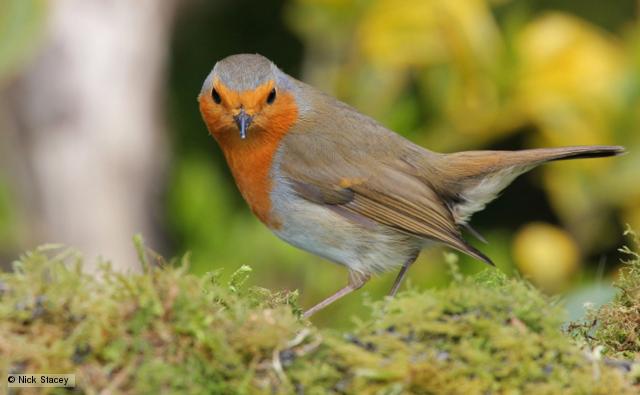Concrete jungles
City wildlife, the environment, & you
A study finds that European Robins (pictured above) may try to sing during the night to avoid traffic noise.
June 1, 2017
Evolution is the process in which, over many years, species develop the adaptations needed to adjust to their constantly-changing environment. What city-dwellers are likely to be unaware of, however, is that their neighbors are undergoing this process to accustom themselves to the busy streets of our everyday lives. Scientists have begun to analyze not only which organisms are dying out due to urbanization, but which species have begun to develop adaptations to suit the populated cities where we exercise our domain.
To cite an example, one of the greatest threats to birds in urban environments is noise pollution. Birds must perform their songs to attract mates and declare their territories. As such, songs are a vital aspect of the reproduction among birds and, by extension, the survival of a population as a whole.
People play a large role in deterring this process- through the use of vehicles, we produce an excess of traffic noise that alters the original acoustic environment, and thus make it difficult for birds to be heard.
A study found that in response to this increase in noise pollution, European robins (Erithacus rubecula) in urban environments adjust their schedules by singing in the nighttime rather than the day.
This conclusion was reached after a series of surveys in which occurrences of the robins’ song was found to sharply increase during the evening.
“Singing individuals gave an average of 18.41 song phrases per sampling period during the day and 24.57 during the night,” the study finds.
Robins and other birds embodying this trend will likely be vulnerable to predation, while also experiencing increased stress levels as they must remain alert in the daytime as well.
iSchool junior Jayda Torres responds to the notion of organisms adapting in a similar way as the aforementioned study: “I think it’s sad. Humans are not in charge of Earth, we are a part of Earth’s community and nature shouldn’t have to ‘adjust’ to survive in the conditions humans have created.”
Torres also notes that “it’s surprising how they have done it in such a short period time, compared to other animals that have evolved to adjust to their environment for centuries.”
Another study concludes, through studying the Eastern wood pewee (Contopus virens), that certain birds may try to sing at an increased frequency to compete with traffic noise.
The adjusted song is greater in frequency and shorter in duration. The study goes on to explain that it’s possible for modified songs to be less effective: “… if intended receivers do not respond as strongly to altered songs, males that adjust their songs with traffic noise amplitude might have a reduced ability to attract a mate or defend a territory.” Additionally, these songs may cause vulnerability to vocal damage.
In response to any similar phenomenon, people have begun countering the effects of urban life on nature.
Johanna Esteras is an iSchool parent who works at P.S. 146 and strives to incorporate wildlife into an urban setting through education.
Esteras provides students with an outlet to experience nature through a farming and sustainability program. The school also has various animals including monarch butterflies, trout, frogs, and bees that are used to heighten student’s learning experience on topics relating to the environment.
Esteras believes that it’s important to provide students with such experiences so “they can have a better understanding of nature,” and hopes that they become “aware of the nature around them, and hopefully develop a love, understanding, and enough respect for it so they become stewards of the environment and help to protect it.”
Victoria Behar, a chemistry teacher at the iSchool, feels that for the quality of life to be improved, we “need wildlife and to be exposed to it.”
The previously cited study adds that for species that demonstrate the same phenomena, it would be beneficial for noise reduction efforts to be organized: “Even though a uniform reduction in traffic noise is ideal,” the study comments, “other mitigation efforts, like routine road closures, are still helpful since they reduce noise, even if only temporarily.”
Behar agrees that communities should take initiative to preserve wildlife and nature. She says it’s difficult for environmental measures to be taken on a larger scale because “people are more concerned about money and the short-term as opposed to the long-term.”
“People see the demand of now and how to make a profit,” she says, “and fail to see the impact on wildlife and the general environment.”
The studies suggest that further research on how exactly species evolve to compensate for rapidly changing environments may provide us with a deeper understanding of what local communities can do to preserve the sanctity of such species. As such, advancements in analysis and fieldwork appear to be the key for initiation.


